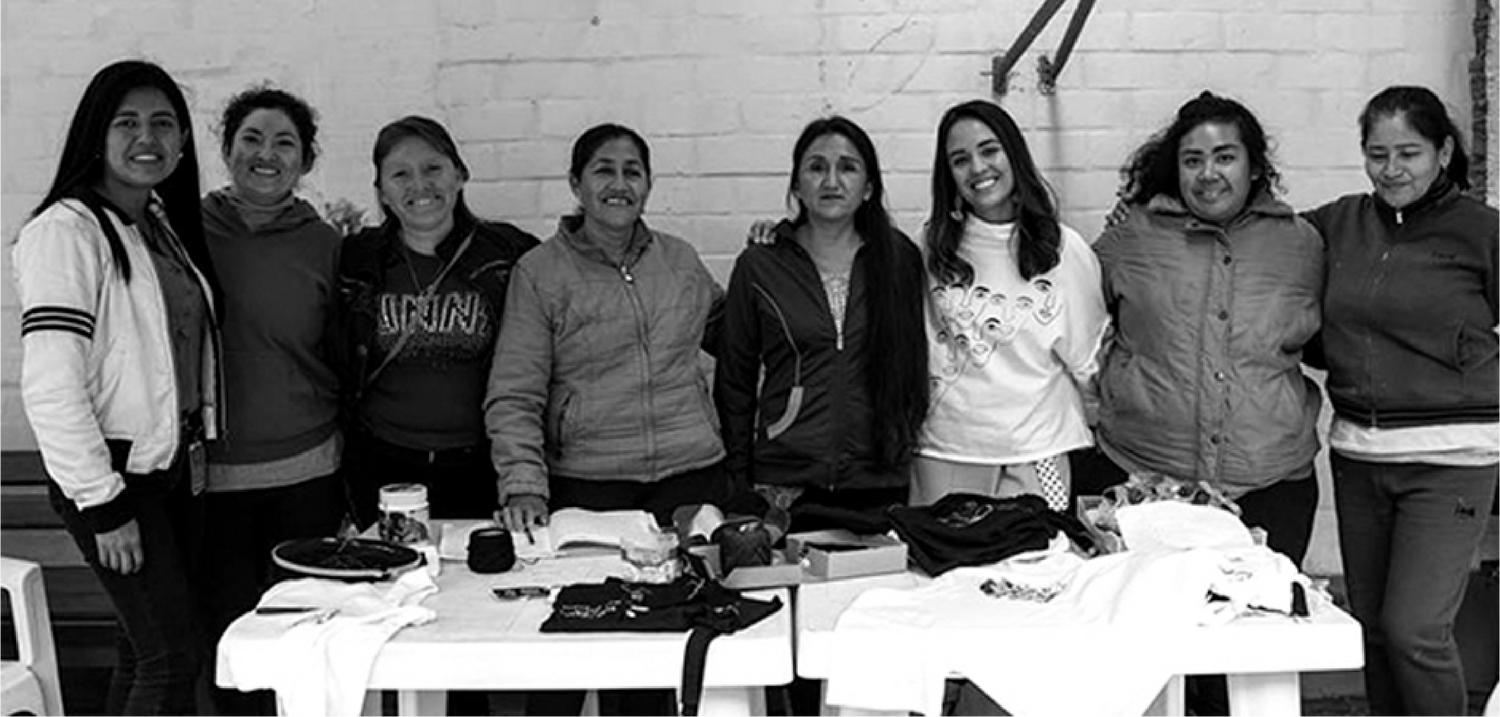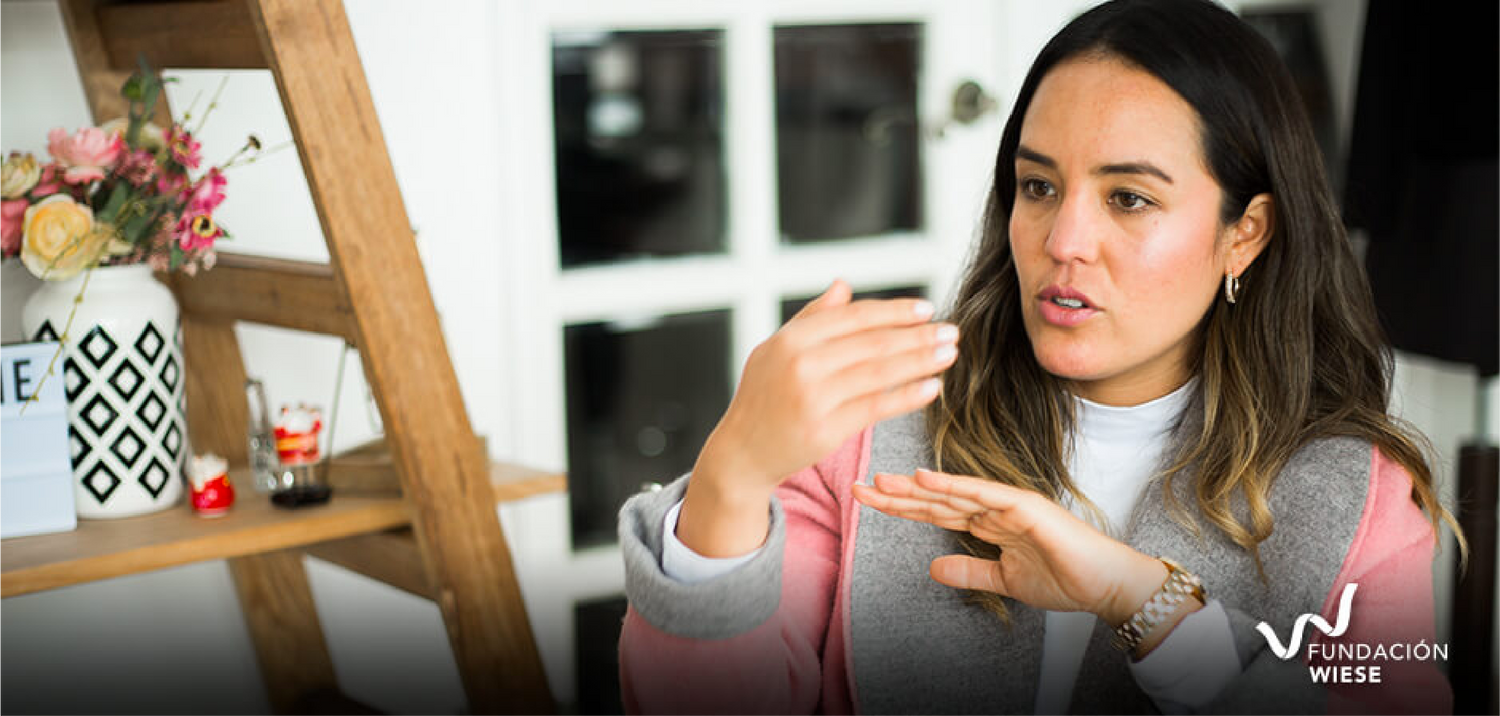
We present to Estrafalario one of the eight social enterprises selected for the Due Diligence stage of the Entrepreneurial Fund.
At this stage, the Entrepreneurial Fund team develops a business plan and a financing scheme together with each finalist company, and then submits this information to the evaluation of an Investment Committee, which will ultimately define the formation of the first portfolio of social enterprises of the Entrepreneurial Fund of the Wiese Foundation.
Estrafalario is an urban fashion brand, which offers clothing and accessories of versatile and original designs. This brand is aimed at women who are economically active and, unlike its competition, Estrafalario offers its consumers the possibility of generating through their purchase, a social and environmental impact.
Estrafalario works to empower the women of the Chorrillos Annex prison, offering them a decent job and training the teenage mothers of INABIF. Likewise, it seeks to extend the useful life and uses of the garments it manufactures, making versatile designs, generating a circular economy, recycling and / or using organic fabrics and offering a fair payment to its clothing service providers.
Under these ideals works Valery Zevallos, founder of Estrafalario, who tells us details of the company and the work it does to be a benchmark for sustainable fashion in Peru.

Valery Zevallos tells us that she launched her clothing brand in 2010, convinced that she wanted to dedicate herself to fashion design. However, it is not until 2015 when he becomes aware of the importance of sustainable fashion; This occurred after attending an event, where it was shown that fashion is the second most polluting industry in the world and that parallel to this, in Peru there are alarming rates of abuse and violence against women. Thus, he decided to contribute to the solution of both problems through his company. Estrafalario's current business model seeks to generate a social and environmental impact, economically helping women in vulnerable situations and reducing the generation of waste from the garments it makes.
Estrafalario works with sustainable inputs such as organic natural fibers and recycled products. For example, the lycras in their swimwear are made of ECONYL, a regenerated and 100% sustainable product. In social terms, Valery Zevallos explains that, as Estrafalario grows, so does its work network made up of inmates from the Chorrillos Annex prison that are part of its production chain. It also explains its intention to make the INABIF pilot program scalable so that it is enabled throughout the country, providing teenage mothers with a work tool they will need when they turn 18.
Valery Zevallos says that the main objective of Estrafalario is to continue positioning itself in the country's shopping centers. It has started with the Jockey Plaza, and is evaluating having other strategic points of sale that allow it to expand its commercial channels. "By having more points of sale, we will have more production and thus we will help our beneficiaries," he says.
The leader of the venture indicates that Estrafalario has grown 83% compared to last year. However, they still cannot put more sales modules because they do not have a working capital that allows them to sustain 2 stores in parallel.

Valery recalls INPE and INABIF as first allies, which have allowed her to impact the lives of these women in a state of vulnerability. He also talks about Kunan, an annual contest that rewards social enterprises, where he was among the 10 finalists. She indicates that when she started working with INABIF and the Chorrillos Annex Prison, she did not know that she was leading the emergence of a social enterprise; and that only after answering all the questions of the aforementioned contest, could he recognize himself as such and begin to measure his impacts.
Valery believes that his main challenge is focused on properly handling administrative and operational issues, because the more he grows, the more expenses begin to be generated. "We, with the social program of INABIF must pay the teachers and the people who train the young mothers of the Program, and it is difficult to subsidize it, because they still do not produce," she tells us.
Valery tells us that thanks to the Wiese Foundation's Entrepreneurial Fund, he is learning to outline and visualize the weak areas of his company. "Being part of the Entrepreneurial Fund we want to make that leap and have a well-structured company (...). I like to think about 3-year goals, because that's something we never did and we loved it," he says.
She also says that she wants the Due Diligence stage of the Entrepreneurial Fund to help her grow her Social Program, since that is the heart of the brand. "We want to position ourselves as the first fashion brand in Peru with a socio-environmental impact",
